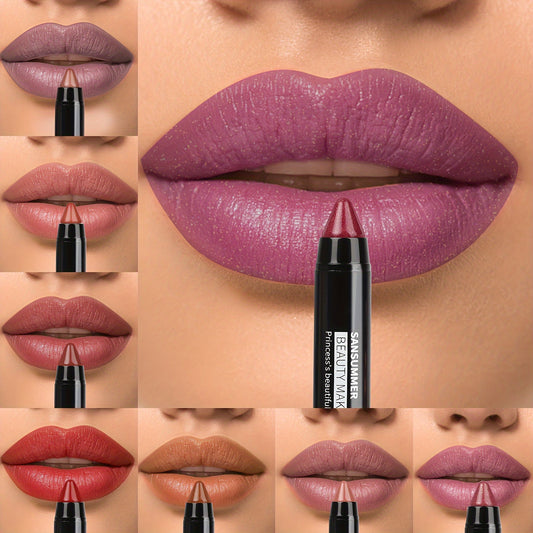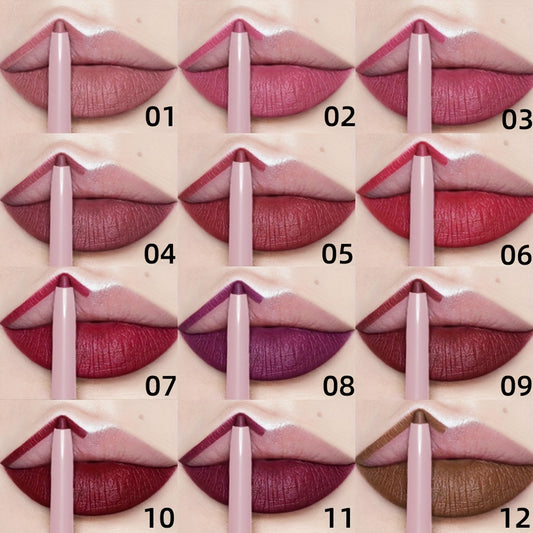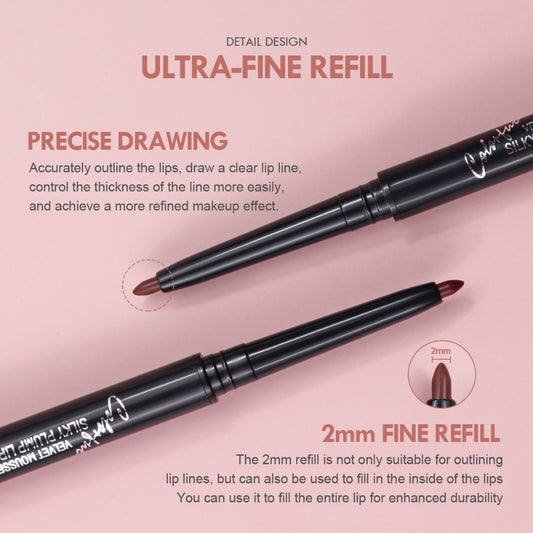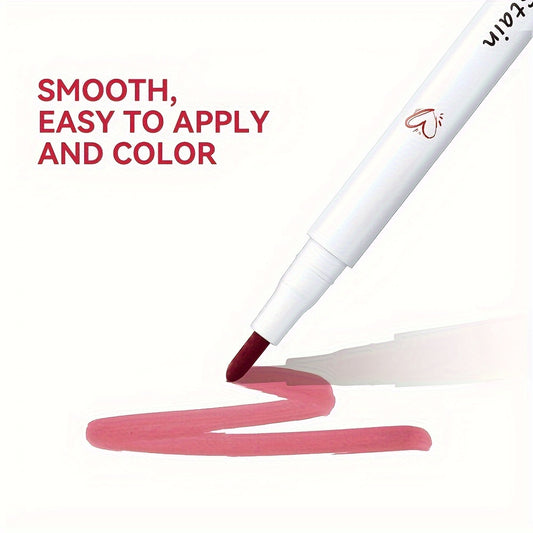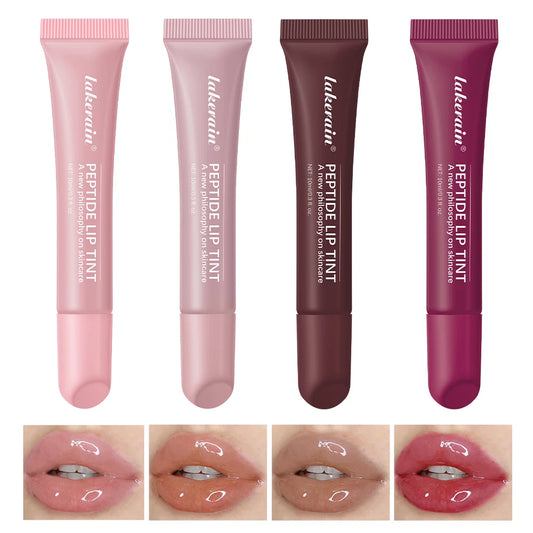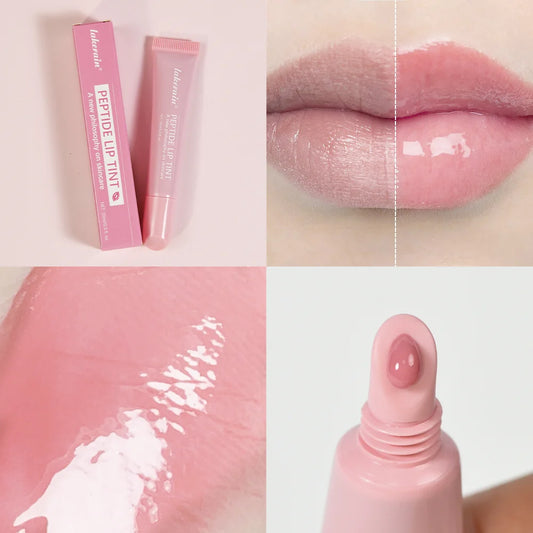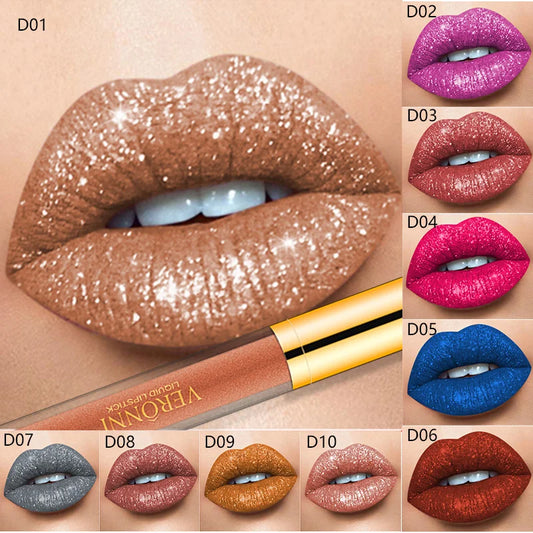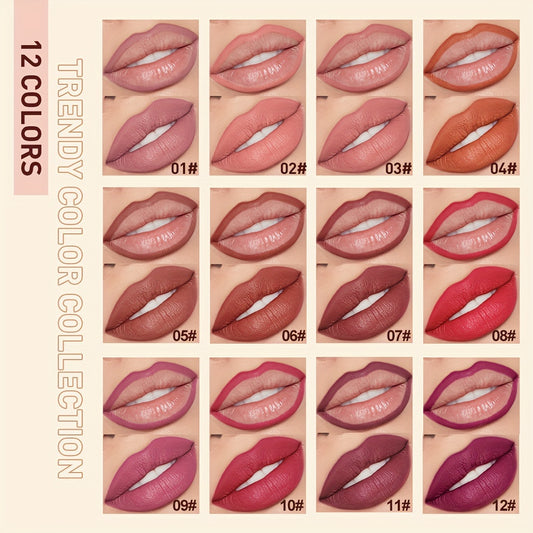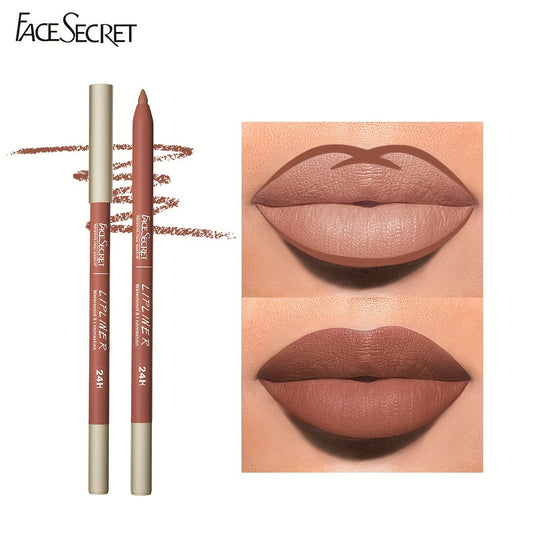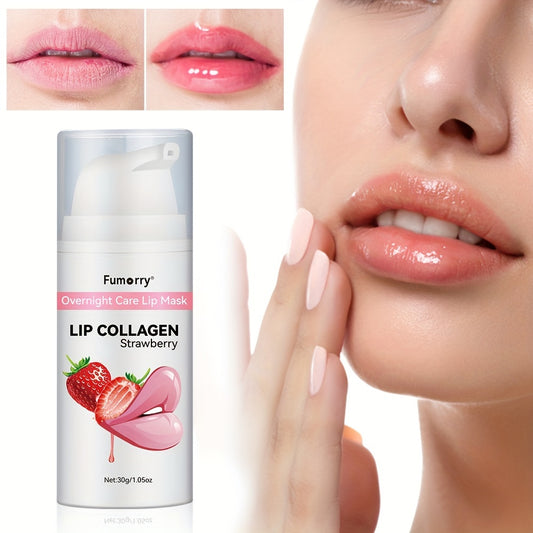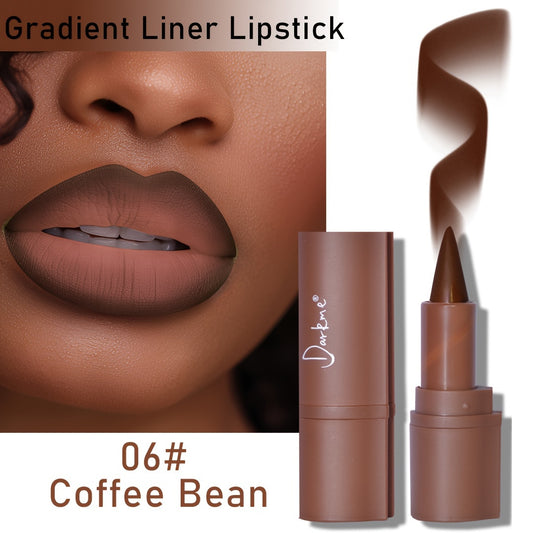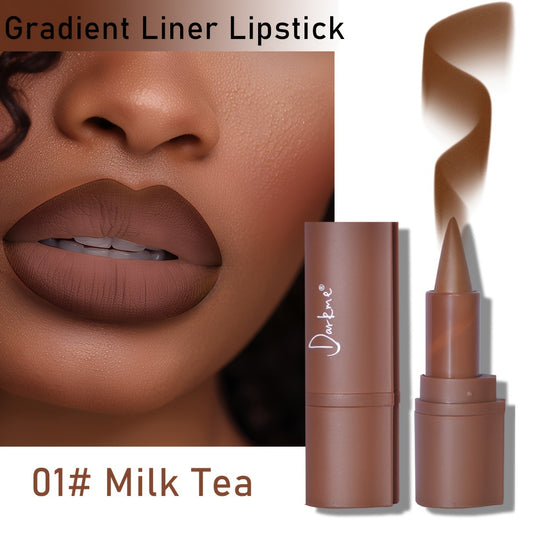The Ultimate Guide on How to Heal Chapped Lips: Expert Tips and Remedies
Share
Chapped lips can be a real pain, and they often show up at the worst times. Whether it's the biting cold of winter or the dry heat of summer, our lips are vulnerable to the elements. Luckily, there are plenty of ways to tackle this issue. In this guide, we'll explore everything from the causes of chapped lips to effective remedies and preventive measures. By the end, you'll know exactly how to heal chapped lips and keep them looking and feeling great all year round.
Key Takeaways
- Identify environmental factors like weather and dehydration that cause chapped lips.
- Establish a daily lip care routine and stay hydrated to prevent dryness.
- Use topical treatments and natural remedies for immediate relief from severe chapping.
- Choose lip balms with nourishing ingredients while avoiding irritants.
- Recognize when chapped lips might indicate a more serious condition that needs medical attention.
Understanding The Common Causes Of Chapped Lips
Environmental Factors That Contribute
Okay, so why do we even get chapped lips in the first place? Well, a lot of it comes down to the environment around us. Think about it: winter winds, scorching summer sun, even just plain old dry air. These things can really mess with the delicate skin on your lips. They strip away moisture like crazy, leaving them feeling like sandpaper.
- Cold weather is a big one. The air is drier, and that sucks the moisture right out.
- Sun exposure is another culprit. Just like your skin, your lips can get sunburned, leading to peeling and dryness. Always use sunscreen lip balm.
- Windy conditions? Forget about it. The wind just whips away any remaining moisture.
It's not just about being outside, either. Indoor heating can be just as bad, creating a super dry environment that dries out your lips without you even realizing it.
Dehydration And Its Effects
Dehydration is a sneaky cause of chapped lips. You might not even realize you're not drinking enough water until your lips start to crack. Your lips are often the first to show signs of dryness when you're not getting enough fluids. It's like they're waving a little red flag saying, "Hey, I need some water over here!" And licking your lips? That's the worst thing you can do. It might feel good for a second, but as the saliva evaporates, it takes even more moisture with it. So, resist the urge!
Dietary Influences On Lip Health
What you eat can also play a role in the health of your lips. Believe it or not, certain vitamin deficiencies, especially in the B vitamins, can leave your lips dry and irritated. Also, acidic or salty foods can irritate the skin on your lips. So, a balanced diet is important. Make sure you're getting enough of the good stuff, like vitamins and omega-3 fatty acids, which help maintain your skin's moisture barrier. Think fish, nuts, and seeds. And maybe lay off the super salty snacks for a while to give your lips a break. It's all connected, you know? Dietary tips can help.
Preventive Strategies For Healthy Lips

Daily Lip Care Routine
Okay, so you want to avoid the whole chapped lip situation altogether? Smart move. It's way easier to keep your lips healthy than to fix them once they're cracked and sore. A simple daily routine can make a huge difference. Think of it like brushing your teeth, but for your lips.
- Start with a gentle cleanser. Just like your face, your lips can get dirty. Use a mild cleanser to remove any makeup or grime.
- Apply a good quality lip balm. This is non-negotiable. Find one you like and keep it with you. Seriously, everywhere. Car, purse, desk – you name it.
- Before bed, slather on a thicker balm or lip mask. This gives your lips extra time to heal and hydrate overnight.
Importance Of Hydration
Dehydration is a major culprit when it comes to chapped lips. If your body is lacking water, it shows up everywhere, including your lips. They're one of the first places to dry out because they don't have oil glands like the rest of your skin. So, drink up!
I always keep a water bottle with me. It's a simple reminder to keep sipping throughout the day. It's amazing how much better my lips (and skin in general) look when I'm properly hydrated. Plus, it helps with energy levels too!
Here's a quick guide to help you stay hydrated:
- Carry a reusable water bottle.
- Set reminders on your phone to drink water.
- Eat water-rich foods like cucumbers and watermelon.
- Limit sugary drinks, as they can actually dehydrate you.
Avoiding Harmful Habits
Okay, this is the tough one. We all have those little habits that we know aren't great for us, but we do them anyway. When it comes to your lips, some habits are particularly damaging. Think about it: licking your lips, biting them, or picking at dry skin. All bad news. Licking your lips actually makes them drier because the saliva evaporates and takes moisture with it. Biting and picking? Just creates more irritation and can even lead to infection. Try to be mindful of these habits and actively work to stop them. Consider using a hydrating balm to help curb the urge to lick or bite.
Here are some habits to avoid:
- Licking your lips
- Biting your lips
- Picking at dry skin
- Using flavored lip balms (they can encourage licking!)
Immediate Relief Options For Severe Chapping
Topical Treatments To Consider
When your lips are seriously chapped, like cracking and maybe even bleeding, you need to bring out the big guns. Over-the-counter ointments are a good starting point. Look for stuff with petrolatum or lanolin. These ingredients create a barrier that locks in moisture and helps your lips heal faster. I've had good luck with those, especially when I put them on before bed.
Natural Remedies For Quick Relief
If you're more into natural stuff, there are options! Coconut oil is a classic. It's moisturizing and has some antimicrobial properties, which is great if your lips are cracked and vulnerable. You can also try honey; it's a natural humectant, meaning it draws moisture to the skin. Just slather it on and let it sit for a bit before licking it off (or wiping it off, if you're trying to be civilized). I've also heard good things about almond oil, but haven't tried it myself yet.
- Coconut Oil
- Honey
- Aloe Vera
I've found that applying a thick layer of natural oil or balm before bed really helps. It gives your lips a chance to heal overnight while you're not talking, eating, or otherwise messing with them. It's like a mini spa treatment while you sleep!
When To Seek Professional Help
Okay, so sometimes chapped lips are more than just chapped lips. If you've tried everything and they're still not getting better after a week or two, or if they're super painful, swollen, or have blisters, it's time to see a doctor. It could be something else going on, like an infection or a reaction to a product. A dermatologist can figure out what's up and recommend a treatment that actually works. Don't mess around when it comes to your health!
Choosing The Right Lip Balm
It's easy to get lost in the sea of lip balms out there. They all promise the same thing: to heal your chapped lips. But not all lip balms are created equal. Some can even make the problem worse! So, how do you pick the right one? Let's break it down.
Key Ingredients To Look For
When you're scanning the labels, keep an eye out for ingredients that are known to hydrate and protect. Think of these as the superheroes of lip care. Here are a few to prioritize:
- Shea butter: A natural emollient that soothes and moisturizes.
- Beeswax: Helps to create a protective barrier, locking in moisture.
- Coconut oil: Another great moisturizer with added antibacterial properties.
- Lanolin: An excellent emollient that helps to heal and hydrate dry lips.
- Glycerin: Attracts moisture to the lips, keeping them hydrated.
- Ceramides: Help to restore the skin's natural barrier function.
Also, if you're going to be outside, make sure your lip balm with SPF is at least SPF 30. Sun damage can really mess with your lips!
Avoiding Irritating Components
Just as important as knowing what to look for is knowing what to avoid. Some ingredients, while they might seem helpful, can actually irritate your lips and make the chapping worse. Here are some common culprits:
- Menthol and Camphor: These provide a cooling sensation, but they can also dry out your lips.
- Fragrances: Artificial fragrances are a common irritant. Opt for fragrance-free options.
- Alcohol: Dries out the lips.
- Salicylic acid: Exfoliates, but can be too harsh for already chapped lips.
It's a good idea to do a patch test before applying a new lip balm all over your lips. Apply a small amount to a small area and wait 24 hours to see if you have any reaction.
Balms For Different Conditions
Not all chapped lips are the same. Sometimes, you just need a little extra moisture. Other times, you're dealing with severely cracked and painful lips. Here's how to choose a balm based on your specific needs:
- For mild chapping: A basic balm with shea butter or beeswax should do the trick. Reapply frequently.
- For severe chapping: Look for an ointment-based product with ingredients like petrolatum or lanolin. These are more effective at sealing in moisture. Consider a hydrocortisone lip balm for severely dry lips.
- For sun protection: Choose a lip balm with SPF 30 or higher. Reapply every two hours, especially after eating or drinking.
- For overnight treatment: Use a lip mask or a thick balm with nourishing oils like vitamin E and olive oil. This will help to lock in moisture while you sleep. You can also apply natural oils to ultra-tender lips.
Choosing the right lip balm can make a huge difference in how quickly your lips heal. Pay attention to the ingredients, avoid irritants, and select a balm that's appropriate for your specific needs. Your lips will thank you!
DIY Remedies For Natural Lip Care
Chapped lips got you down? Don't worry, you don't always need fancy products. Sometimes, the best solutions are right in your kitchen! Let's explore some simple, effective DIY remedies to bring your lips back to life.
Homemade Lip Balm Recipes
Making your own lip balm is surprisingly easy, and you know exactly what's going into it! A basic recipe involves combining a base oil, a wax, and a butter. Here's a simple one to get you started:
- 1 tablespoon coconut oil (hydrates and soothes)
- 1 tablespoon beeswax (provides a protective barrier)
- 1 tablespoon shea butter (nourishes and softens)
Melt these ingredients together in a double boiler or microwave (in short bursts), then pour into a small container and let it cool. You can add a drop of essential oil for flavor, like peppermint or vanilla, but make sure it's lip-safe!
Exfoliation Techniques
Just like your face, your lips need exfoliation to remove dead skin cells. A gentle lip scrub can do wonders for chapped lip relief. Here's a super simple recipe:
- 1 teaspoon sugar (brown or white works)
- 1/2 teaspoon honey (a natural humectant)
- A few drops of olive oil (for moisture)
Gently rub the mixture on your lips in a circular motion for about a minute, then rinse with warm water. Do this once or twice a week to keep your lips smooth.
Using Natural Oils Effectively
Natural oils are fantastic for hydrating and protecting your lips. Here are a few of my favorites:
- Coconut Oil: As mentioned before, coconut oil is a great all-around moisturizer. Just a dab will do!
- Almond Oil: Rich in vitamin E, almond oil helps to nourish and repair damaged skin.
- Jojoba Oil: Similar to the natural oils produced by your skin, jojoba oil is easily absorbed and won't leave a greasy residue.
Apply a thin layer of your chosen oil to your lips several times a day, especially before bed. You can even mix a few drops of oil into your favorite lip balm for an extra boost of hydration.
Using natural remedies is a great way to care for your lips, but remember to patch test any new ingredient to avoid allergic reactions. If your chapped lips persist or worsen, it's always best to consult a dermatologist.
Long-Term Strategies For Maintaining Lip Health
Incorporating Lip Care Into Your Routine
Making lip care a habit is key! Think of it like brushing your teeth – something you do without even thinking about it. Find a lip balm you love and keep it handy. Stash one in your purse, one at your desk, and one by your bed. That way, you're never caught without dry lips treatment. Consistency is what will really make a difference in the long run.
Regular Exfoliation Practices
Exfoliating your lips might sound fancy, but it's super easy. It helps get rid of dead skin, so your lips stay smooth and healthy. You don't need anything special – a soft toothbrush or a simple sugar scrub will do the trick. Just be gentle! Over-exfoliating can actually make things worse. Here's a simple routine:
- Dampen a soft toothbrush.
- Gently rub your lips in small, circular motions for about 30 seconds.
- Apply a good quality lip balm afterwards to moisturize.
Staying Hydrated Year-Round
Dehydration is a major culprit when it comes to chapped lips. It's not just about drinking water when you're thirsty; it's about staying consistently hydrated throughout the day. Carry a water bottle with you and sip on it regularly. And remember, certain foods, like cucumbers and watermelon, can also help you stay hydrated.
Staying hydrated is not just good for your lips; it's good for your overall health. Make it a priority, and your lips (and the rest of you) will thank you!
Recognizing Other Lip Conditions
It's easy to assume any lip discomfort is just chapped lips, but sometimes, it could be something else entirely. Knowing the difference is important so you can treat it correctly. I've definitely been there, thinking a weird spot was just dryness, only to realize it was something that needed a different kind of attention.
Differentiating Between Chapped Lips And Other Issues
Chapped lips are usually pretty straightforward: dryness, flaking, maybe a little redness. But what if you're experiencing more than that? Look out for intense pain, swelling, blisters, or sores. These could be signs of something else going on. For example, a cold sore will start as a tingle and then turn into a blister, which is very different from simple dryness. Similarly, allergic reactions can cause significant swelling and itching, which you won't typically see with chapped lips. It's all about paying attention to the specific symptoms.
Common Lip Disorders To Be Aware Of
There are a few common lip disorders that can mimic chapped lips, but they require different treatments. Here are a few to keep in mind:
- Angular Cheilitis: This is inflammation at the corners of your mouth, often caused by a fungal or bacterial infection. It can look like severe dryness, but it's usually accompanied by cracking and pain. Licking your lips can make it worse, and it often needs an antifungal or antibiotic cream to clear up. Exfoliate your lips gently to remove dead skin.
- Cold Sores (Herpes Simplex Virus): These are caused by a virus and usually start as small blisters that eventually crust over. They're contagious and require antiviral medication for effective treatment.
- Contact Dermatitis: This is an allergic reaction to something that has touched your lips, like a new lipstick or toothpaste. Symptoms include redness, itching, and sometimes blistering. Identifying and avoiding the allergen is key.
When To Consult A Dermatologist
Okay, so when should you actually see a doctor? If your "chapped lips" aren't getting better with regular lip care routine after a week or two, or if you notice any of the following, it's time to make an appointment:
- Severe pain or bleeding
- Blisters or sores that don't heal
- Significant swelling or redness
- Signs of infection (pus, increased pain, fever)
It's always better to be safe than sorry. A dermatologist can properly diagnose the issue and recommend the right treatment, whether it's a prescription cream, medication, or just some good advice. Don't hesitate to seek professional help if you're concerned. They can also help you find the right lip balm for your specific needs.
When it comes to lip health, it's important to notice any unusual changes. Conditions like cold sores, chapped lips, or even angular cheilitis can affect your smile. If you see any signs of these issues, don’t wait! Visit our website for more information and tips on how to care for your lips effectively.
Wrapping It Up: Your Path to Soft, Healthy Lips
So there you have it! Healing chapped lips doesn’t have to be a mystery. With the right tips and tricks, you can say goodbye to dryness and cracking. Remember to stay hydrated, choose the right lip balm, and keep those pesky habits like licking your lips in check. It’s all about consistency and finding what works for you. Whether you go for a store-bought balm or whip up something at home, just keep your lips moisturized and protected. With a little care, you’ll have soft, smooth lips in no time. Happy lip care!
Frequently Asked Questions
What causes chapped lips?
Chapped lips can be caused by dry weather, sun exposure, cold winds, dehydration, or even certain foods that irritate the skin.
How can I prevent my lips from getting chapped?
To keep your lips healthy, use a good lip balm, drink plenty of water, and avoid licking your lips.
What ingredients should I look for in lip balm?
Look for lip balms with natural ingredients like beeswax, shea butter, and coconut oil, which help to hydrate and protect your lips.
Are there any natural remedies for chapped lips?
Yes! You can use coconut oil, honey, or homemade lip balms with natural ingredients to soothe and heal chapped lips.
When should I see a doctor for chapped lips?
If your lips are very painful, bleeding, or don’t improve with home care, it’s best to see a dermatologist.
Can my diet affect my lip health?
Absolutely! Eating hydrating foods like fruits and vegetables, and staying hydrated can help keep your lips healthy.


